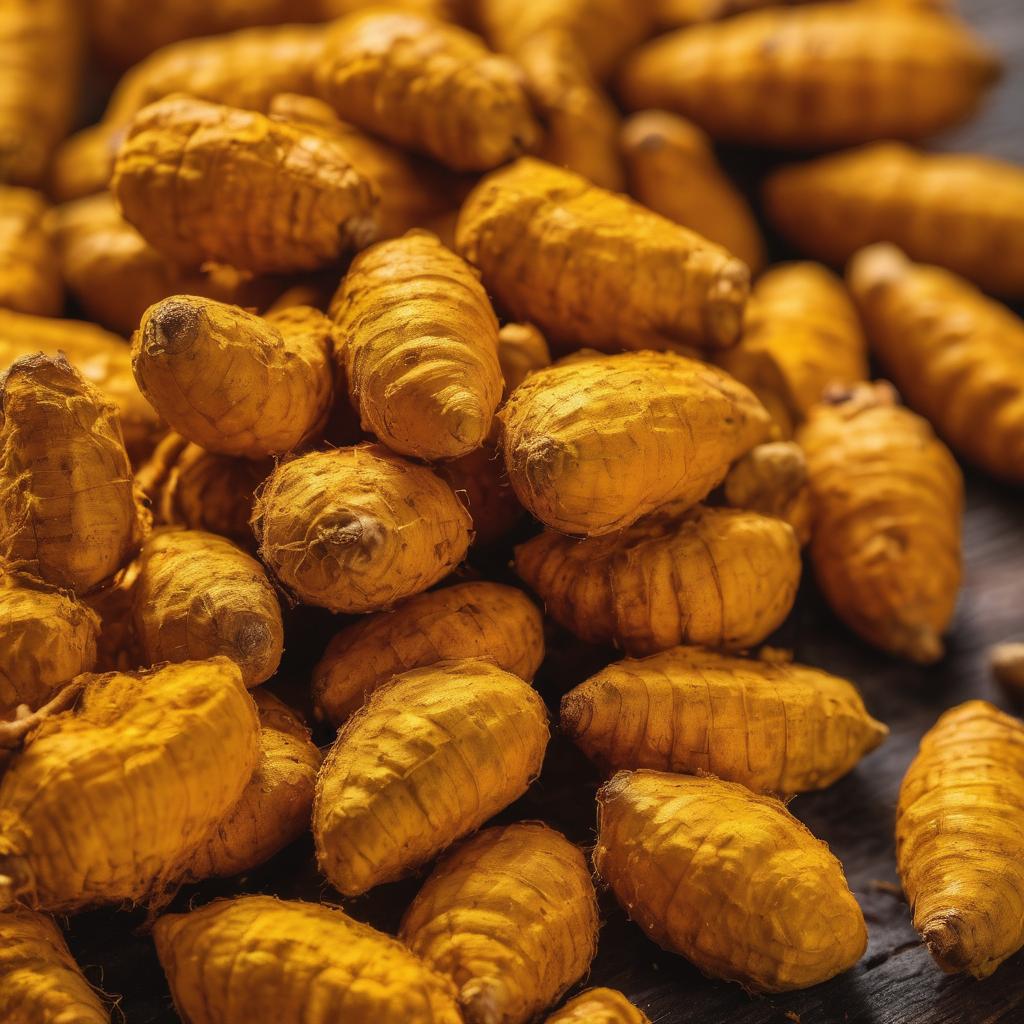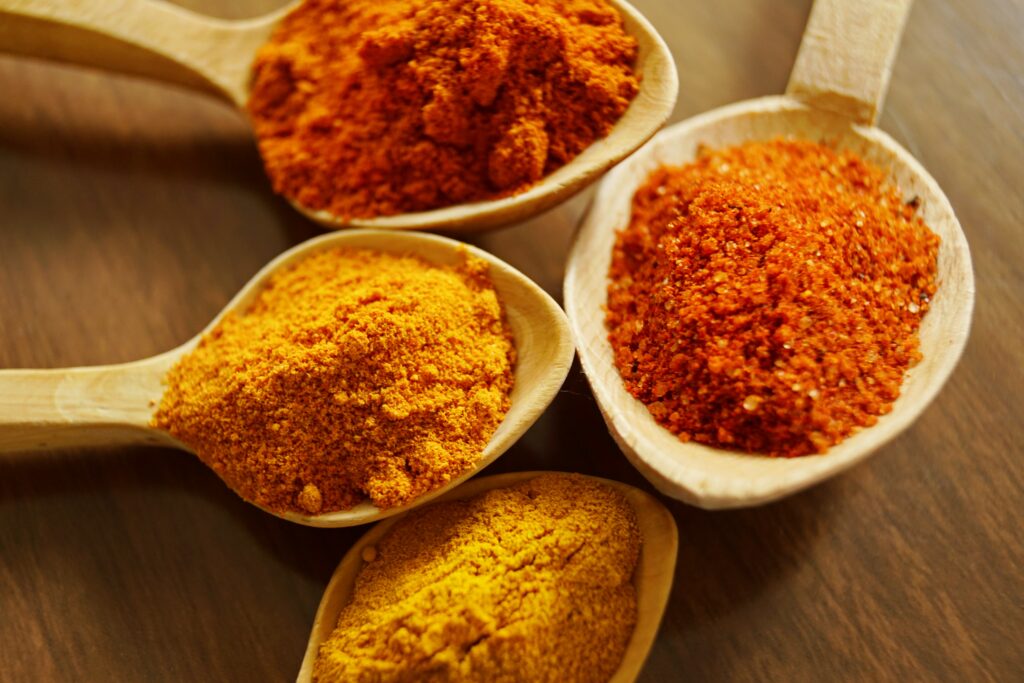
Looking to improve your liver health naturally? Have you heard about the incredible benefits of curcumin? Curcumin, found in turmeric, has been shown to have a positive impact on liver function.
By enhancing liver health, curcumin can support your overall well-being. In this article, we will explore the role of curcumin in liver health and delve into the numerous benefits of turmeric for optimal liver function. Discover the power of curcumin and how it can help you enhance your liver health naturally.
Key Takeaways
- Turmeric, specifically curcumin, enhances liver function and supports liver health.
- Curcumin increases the activity of liver enzymes involved in detoxification and helps reduce liver inflammation.
- Turmeric has antioxidant properties that protect the liver from oxidative stress and damage.
- Incorporating turmeric into your diet or taking curcumin supplements can promote liver detoxification and overall liver health naturally.
Turmeric’s Impact on Liver Function
You can regularly improve your liver function by incorporating turmeric into your diet. Turmeric, a spice commonly used in Indian cuisine, has been found to have numerous health benefits, including its positive impact on liver function. The active compound in turmeric, called curcumin, has been shown to have a powerful effect on detoxification and the proper functioning of liver enzymes.
One of the main functions of the liver is to detoxify harmful substances from the body. Curcumin has been found to enhance the liver’s ability to remove toxins by increasing the production of enzymes responsible for detoxification.
In a study published in the journal Food and Chemical Toxicology, researchers found that curcumin supplementation significantly increased the activity of these detoxification enzymes in rats.
Furthermore, curcumin has been shown to have a direct influence on liver enzymes. These enzymes play a crucial role in the metabolism of drugs, toxins, and other substances. Studies have demonstrated that curcumin can modulate the activity of these enzymes, leading to improved liver function and overall health.
Incorporating turmeric into your diet is a simple and effective way to support your liver health. You can add turmeric powder to your meals, sprinkle it on roasted vegetables, or even enjoy a cup of turmeric tea. Just remember to choose high-quality turmeric products to ensure maximum curcumin content.
By doing so, you can harness the power of turmeric’s effect on detoxification and curcumin’s influence on liver enzymes to promote optimal liver function and overall well-being.
Further Research
The Trouble with Turmeric: Associated Liver Injuries, Jefferson Health,
Turmeric supplements have been linked to liver damage in 5 people, New Scientist
Curcumin’s Role in Liver Health
One can understand the significance of curcumin’s role in liver health by examining its impact on detoxification and liver enzyme activity.
Curcumin has been found to have a positive effect on liver enzymes, which play a crucial role in the detoxification process. Detoxification is the process by which the liver removes harmful substances from the body. These substances can include environmental toxins, drugs, alcohol, and by-products of metabolism.
Curcumin has been shown to increase the activity of liver enzymes such as glutathione S-transferase (GST) and UDP-glucuronosyltransferase (UGT), which are involved in the detoxification of harmful compounds. By enhancing the activity of these enzymes, curcumin helps the liver efficiently eliminate toxins from the body.
Moreover, curcumin has been found to support the liver’s antioxidant defense system. It acts as a powerful antioxidant and helps protect the liver from oxidative stress and damage.
Oxidative stress occurs when there is an imbalance between harmful free radicals and antioxidants in the body. By neutralizing free radicals, curcumin helps reduce liver inflammation and prevents further liver damage.
In addition, curcumin has been shown to inhibit the activation of certain genes involved in liver fibrosis, a condition characterized by the excessive accumulation of scar tissue in the liver. This further highlights the potential of curcumin in maintaining liver health.
Further Research
Dehzan. M. L et al, Effects of curcumin/turmeric supplementation on liver function in adults: A GRADE-assessed systematic review and dose–response meta-analysis of randomized controlled trials. Complementary Therapies
Turmeric Health Benefits: How Curcumin in Turmeric Benefits Your Liver.
Benefits of Turmeric for Liver Function
Turmeric offers numerous benefits for improving liver function, including its ability to enhance detoxification and protect against oxidative stress. The active compound in turmeric, known as curcumin, has been shown to support liver health in several ways.
Firstly, turmeric aids in liver detoxification. The liver is responsible for filtering toxins from the body, and curcumin has been found to stimulate the production of enzymes that assist in this process. By enhancing the liver’s detoxification abilities, turmeric helps to remove harmful substances from the body more efficiently.
Additionally, curcumin’s antioxidant properties play a crucial role in liver health. Oxidative stress, caused by an imbalance between antioxidants and free radicals in the body, can lead to liver damage. However, curcumin acts as a potent antioxidant, neutralizing free radicals and reducing oxidative stress in the liver.
Furthermore, turmeric has anti-inflammatory effects, which can benefit liver health. Chronic inflammation is a common factor in liver diseases, and curcumin has been found to inhibit inflammatory pathways in the liver, reducing inflammation and promoting overall liver health.
Further Research
White, C. M., & Lee, J.-Y. (2019). The impact of turmeric or its curcumin extract on nonalcoholic fatty liver disease: a systematic review of clinical trials. Pharmacy Practice, 17(1), 1350. nhancing Liver Health With Curcumin
By incorporating curcumin into your diet, you can effectively enhance liver health. Curcumin, a compound found in turmeric, has been shown to have numerous benefits for the liver. Here are three ways curcumin can improve the health of your liver:
- Reducing inflammation: Curcumin has powerful anti-inflammatory properties that can help reduce inflammation in the liver. Chronic inflammation in the liver can lead to liver damage and disease, so incorporating curcumin into your diet can help protect your liver from these harmful effects.
- Promoting liver detoxification: Curcumin has been found to support the liver’s natural detoxification process. It can enhance the production of enzymes that help eliminate toxins from the body, allowing the liver to function optimally.
- Protecting against liver damage: Curcumin has been shown to have protective effects on the liver. It can help prevent liver damage caused by toxins, alcohol, and certain medications. By protecting the liver from damage, curcumin can help maintain its overall health and function.
Incorporating curcumin into your diet can be done through consuming turmeric supplements or adding turmeric powder to your meals. However, it’s important to note that curcumin is not easily absorbed by the body, so it’s recommended to consume it alongside black pepper or fat to enhance its absorption.
By incorporating curcumin into your routine, you can support your liver’s natural detoxification process and improve its overall health.
The Power of Turmeric for Liver Health

To improve your liver health, harness the power of turmeric. Turmeric, a bright yellow spice commonly used in Indian cuisine, contains a compound called curcumin, which has been shown to have numerous health benefits, including supporting liver health. Curcumin is known for its potent antioxidant properties, which play a crucial role in protecting the liver from oxidative stress and inflammation.
Antioxidants are substances that help neutralize harmful free radicals in the body. Free radicals can damage cells and contribute to various health problems, including liver disease. By incorporating turmeric into your diet, you can increase your intake of antioxidants and promote liver health.
In addition to its antioxidant properties, turmeric also has natural detoxification properties. The liver is responsible for detoxifying the body and removing harmful toxins. Turmeric aids in this process by increasing the production of enzymes that assist in liver detoxification.
Here is a table highlighting the role of antioxidants and natural remedies for liver detoxification:
| Antioxidants | Natural Remedies for Liver Detoxification |
|---|---|
| Vitamin C | Milk thistle |
| Vitamin E | Dandelion root |
| Selenium | Artichoke |
| N-acetyl cysteine | Turmeric |
Incorporating turmeric into your daily routine, whether through cooking or taking curcumin supplements, can be a simple and effective way to support your liver health naturally. Remember to consult with your healthcare provider before making any significant changes to your diet or supplement regimen.
Frequently Asked Questions
How does curcumin exert its protective effects on the liver at a molecular level?
Curcumin, the primary active compound in turmeric, exhibits hepatoprotective effects through its antioxidant and anti-inflammatory properties. It modulates various molecular pathways, including the inhibition of pro-inflammatory cytokines and the activation of antioxidant enzymes, thus mitigating oxidative stress and inflammation in the liver.
Are there specific liver diseases where curcumin supplementation has shown notable benefits in clinical trials?
Research suggests potential benefits of curcumin in various liver conditions, including non-alcoholic fatty liver disease (NAFLD), liver cirrhosis, and hepatitis. While some studies show promising results, more extensive clinical trials are needed to establish definitive recommendations for specific liver diseases.
How does curcumin interact with liver enzymes, and does it have implications for individuals with liver conditions?
Curcumin may influence liver enzymes involved in drug metabolism. This interaction could have implications for individuals with liver conditions or those taking medications. It is crucial for such individuals to consult their healthcare provider to ensure there are no adverse interactions between curcumin supplementation and their existing treatments.
Some studies suggest that curcumin possesses antiviral properties, but its specific role in treating viral hepatitis requires further investigation. It is important to note that curcumin is not a substitute for conventional antiviral therapies, and its use in viral hepatitis should be guided by scientific evidence.
Can dietary and lifestyle modifications enhance the efficacy of curcumin in supporting liver health?
Adopting a holistic approach to liver health, including a balanced diet and regular exercise, can complement the effects of curcumin. Avoiding excessive alcohol consumption and maintaining a healthy weight are also crucial factors in promoting overall liver well-being. These lifestyle modifications can synergize with the hepatoprotective properties of curcumin for optimal liver health benefits.
Conclusion
In conclusion, incorporating curcumin, found in turmeric, into our daily routine can significantly enhance liver health and function. Just as a painter carefully selects the right colors to create a masterpiece, we can choose to nourish our liver with the powerful benefits of curcumin.
By doing so, we can protect our liver from damage, reduce inflammation, and promote overall well-being. So, let turmeric be the paintbrush that creates a vibrant and healthy liver canvas for a better life.


